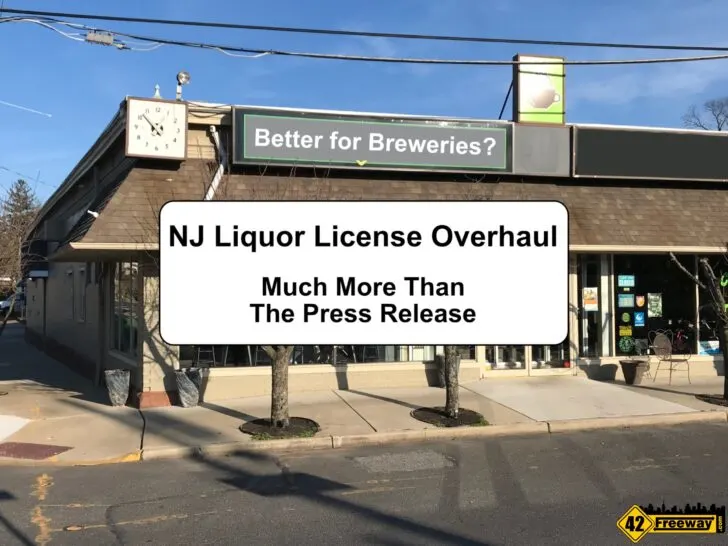Yesterday New Jersey Governor Phil Murphy signed legislation into law which significantly improves the rules around breweries (and Cideries, Meaderies, and Distilleries), particularly in their tasting room offerings to customers. it also addresses several gaps in traditional plenary licenses, particularly around inactive licenses.
“The New Jersey craft brewing and distilling industry is growing rapidly across New Jersey, becoming a mainstay for tourists and locals alike,” said Senator Gopal. “It only makes sense to give this industry room to grow and prosper. Under this law, craft alcohol manufacturers will flourish and revitalize Main Street business districts across the state.”
So here I am the next day writing an article and you’re likely wondering why should I read it… I already know this?
The Governor’s press release is an excellent summary of key highlights, and it seems many media outlets in South Jersey based their articles on that press release. But I spent time reviewing the legislation and found there’s several additional (and interesting) facets that aren’t called out by others.
Plus if you’ve been following me for years you realize that I tend to think outside normal thought patterns… And have identified several ancillary impacts or questions.
Of course I am not a member of the legislature or an attorney, so if you need official determinations on this.. please conduct your own research with more qualified persons.
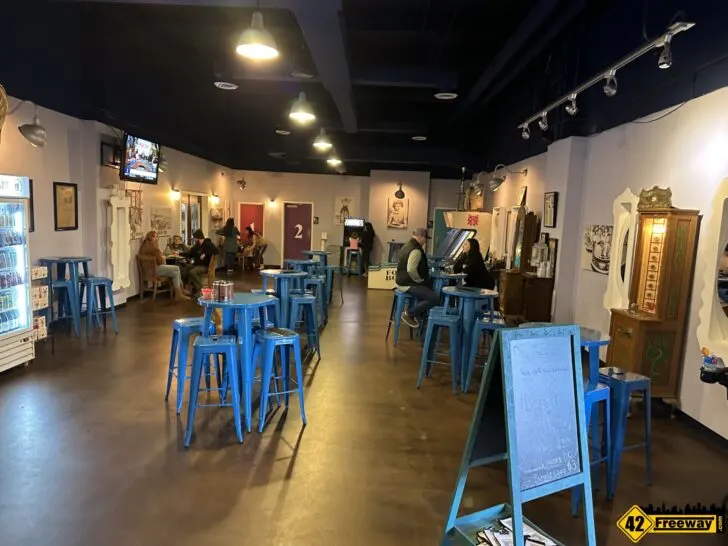
Notes; Plenary and Class C are terms for “full alcohol sales licenses, including beer, wine and spirits”. Also, breweries get the focus of the craft manufacturer changes but most are also directed at Cideries, Meaderies, and Distilleries;
As an example, regarding the traditional plenary (full alcohol) licenses… This new law could have an immediate impact in towns like Harrison Township, where one business (Madison Marquette) has been sitting on FOUR plenary licenses for over 10 years… and the new legislation basically forces a “use it or lose it” set of requirements!
So it’s clear that New Jersey lawmakers are not happy that over 1,500 full alcohol plenary licenses are sitting unused for years, which can be a commercial impact to the townships who would rather see restaurants developed with the licenses.
As I interpret the legislation, an unused full liquor license is allowed to be “inactive” for 2 years, which can be extended to a third by the municipality. Before the final inactive license expiration, the license must be utilized or sold.
For the existing inactive licenses, many of which have been inactive for decades…there are provisions in the new legislation to move them through the process towards expiration. Based on how long a license in inactive, it could have from 1 to 4 years to start utilizing or sell.
If a plenary licenses move to full expired status the license holder loses the license, and the municipality then can offer the license up to sale, typically in a “best price” auction.
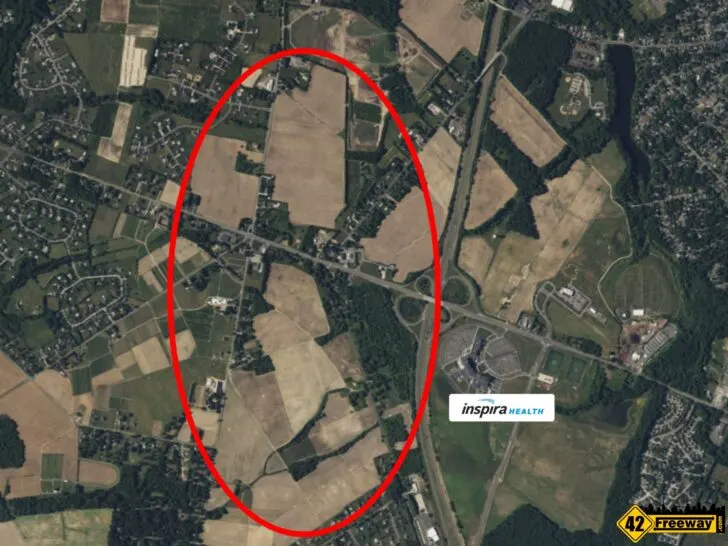
I also wonder if the requirements of ”use it or lose it” starts bringing down the prices for full liquor licenses in New Jersey, as owners sitting on plenary licenses are effectively forced to sell the license or utilize in a business, in just the next few years.
And in the Craft manufacture aspects of the law, which have properly gotten the most attention from the media… We all likely know already that it’s a huge win for the breweries to be able to offer food trucks, unlimited on site events and unrestricted use of televisions!
But there are a few other interesting aspects to the law which I don’t see being clearly called out, such as the ability to offer table service or create outdoor spaces with taps (mobile or permanent).
And in my ”thinking outside the box” mindset, I wonder if there will be a huge benefit to the New Jersey food truck industry… as demand significantly increases for food options at New Jersey’s over 120 active breweries!
I also wonder will we see more breweries also start operating as coffee shops, as the new law allows breweries/distilleries to sell non-alcoholic beverages… and the addition of coffee sales would extend the operating hours for a brewery/craft manufacturer.
The new legislation improves the playing field for breweries in comparison to traditional bars… mainly leaving the “breweries can’t have in-house restaurants, nor serve wine and spirits” as key distinctions.
New Jersey Updated Brewery/Distillery Laws
Last year I had a chance to chat a few times with Death of the Fox brewery owner Chuck Garrity, regarding the New Jersey brewery industry, and the requested changes that brewery groups were looking for.
The conversation at the time was actually focused on his plans for the now opened High Grounds Coffee Roasters shop in Glassboro, but as a brewery owner taking a public position on the then antiquated brewery laws, Chuck and I also discussed the challenges with New Jerseys (former) brewery laws.

Chuck is a member of the Brewers Guild and has positioned himself as an outspoken activist for the benefit of brewery owners. In fact, in 2022 Chuck went as far as to file a lawsuit against the New Jersey Division of Alcoholic Beverage Control stating that the very restrictive laws at the time were a deliberate attack on small breweries.
I have not had a chance to talk to Chuck since the legislation was signed yesterday, but I have to believe he is more than ecstatic. His Facebook page for Death of the Fox celebrating “Starting today, a tour is no longer required…”! (Facebook)
From my prior conversations it seems the brewery owners really weren’t asking for much… Mainly they wanted food trucks at the breweries, unrestricted number of events within the breweries, and no restrictions on the use of televisions.
And it seems the law that was approved yesterday provides those aspects, and even more.
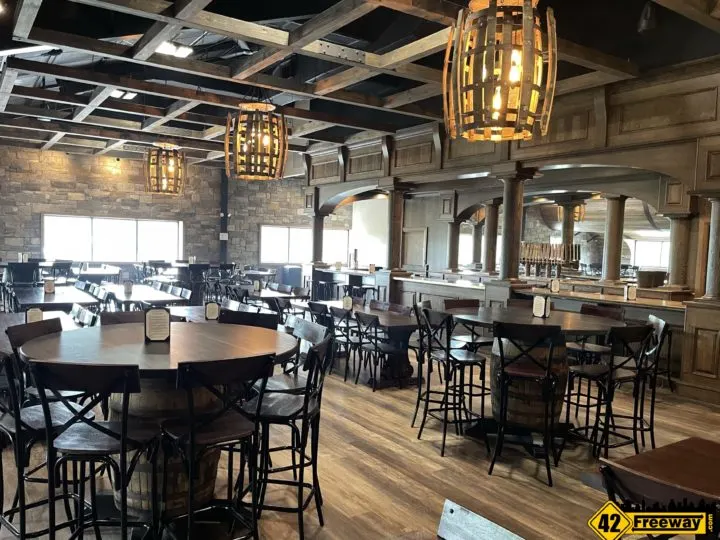
Events – On Premises
With the new legislation, breweries are now allowed to have an unlimited number of on-premises special events and private parties.
The way it was explained to me before, is breweries could have more events but they were not allowed to publicize more than 25 events! Which if you aren’t allowed to tell people about the events, what was the point?!
And again, with the new legislation there are no restrictions! In fact.. tickets can also be sold to the events.
Another interesting aspect is for private parties. If the brewery agrees, the customers holding the private party can bring in wine and other malt-beverages!
I expect that you will soon start seeing a lot more Facebook events being created for your favorite breweries to have trivia nights, music performances, painting, and other fun events
Events – Off Premises and Social Affair Events
Breweries will now be allowed to hold up to 25 off-premises special events, which I assume is mostly referring to beer festivals.
Additionally the law calls out that license holders would be entitled to participate in up to 25 “social affair events”. I wasn’t 100% clear on this, but social affair permits seem to be related to nonprofit/charitable type events such as for towns, religious, charitable purposes.
From my interpretation, an example “social affair events” scenario could be… say a Township is having a Spring Festival, and the town applies for a social affair permit to serve alcohol. A brewery/craft manufacturer could participate in that event and have it count against the Social Affair 25 events, and not the Off-Premises 25 events.
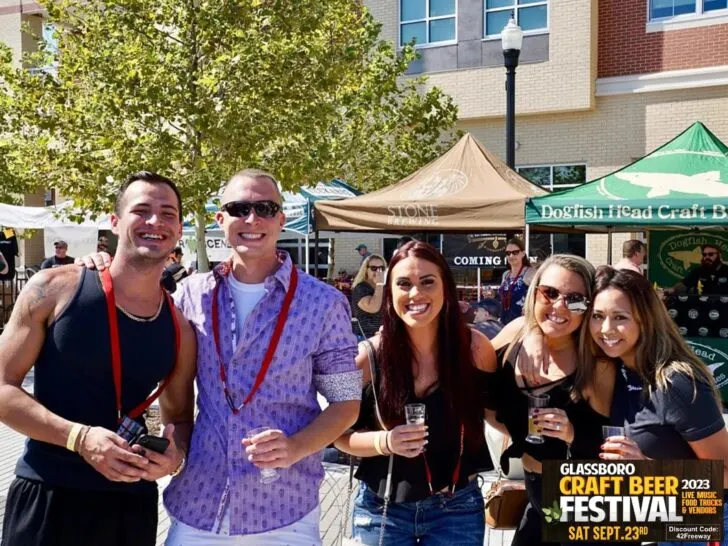
Table-Side Service
There is a reason why you wait in a long line at the large Bonesaw Brewery in Glassboro… previously Breweries were not allowed to offer table service!
Under the new legislation, Breweries, Cideries, Meaderies, and Distilleries are now allowed to sell and serve beer to customers tableside, utilizing servers or waitstaff employed by the brewery. Those servers would also need to be certified by an industry recognized server training program.
While I have no idea if any brewery will enact this service, you have to wonder if the larger breweries give this a try as it could reduce long lines.
Snack Food Sales
Breweries will be allowed to offer for sale snack food items including but not limited to; packaged crackers, chips, nuts and similar snacks.
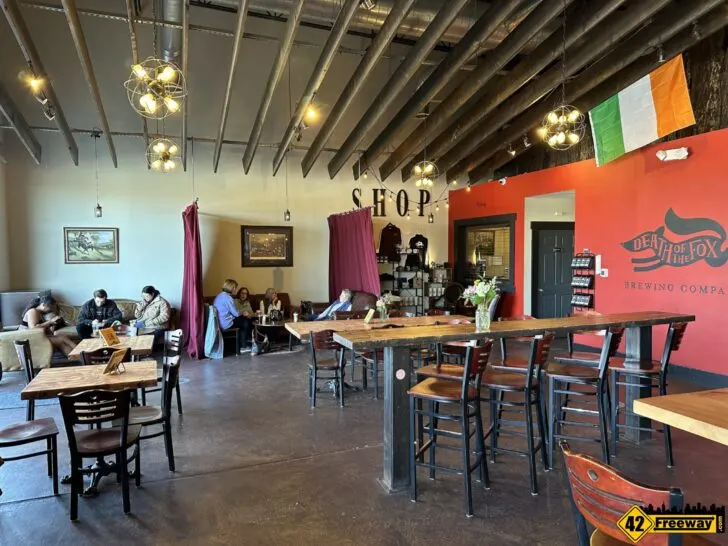
Non-alcohol Beverage Sales (Including Coffee)
New Jersey breweries can now offer for sale-non alcoholic beverages, which would seem to include coffee.
This prior restriction is one that I would see get called out a lot by customers… the responsible thing when consuming alcohol is to have a designated driver, and for the establishment to offer other non-alcohol beverages for sale to slow up alcohol consumption.. but previously non-alcohol sales were NOT allowed!
Well that has changed with the new legislation. Expect to see soft drinks, coffee and more offered at breweries!
Regarding coffee, currently only the Death of the Fox Brewery in Clarksboro has been allowed to sell coffee, and offers a full coffee shop experience.
Owner Chuck Garrity previously told me his Death of the Fox coffee shop aspect was allowed under a special ruling for him, because he had created the plans for the coffee shop aspect before the State had ever clearly outlawed it with the prior rules.
Now with the new legislation it appears any brewery can offer coffee, soda, ice tea… and expand their business into being a coffee shop!
One thing that I am not certain on though is, would pastries, muffins and other coffee shop items fit into the “snack sales” aspect of the legislation?
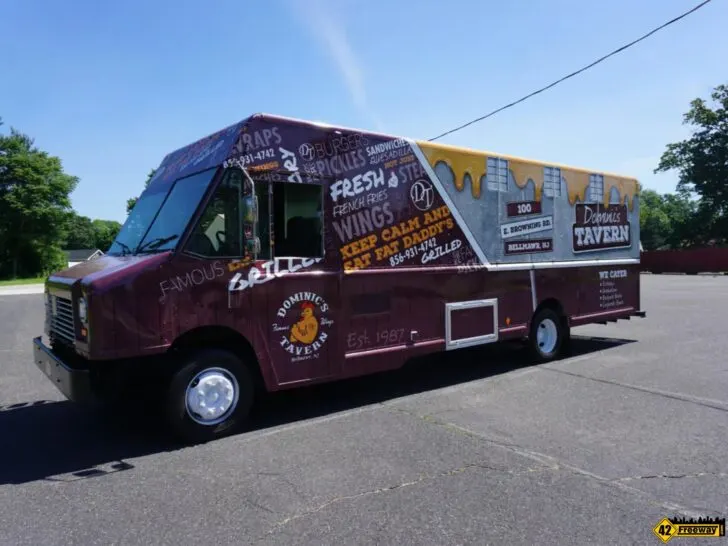
Food Trucks and Restaurants
This one has gone back and forth in the New Jersey brewery industry for years, as for some period of time food trucks were allowed at breweries, then at other periods of time they weren’t allowed, then they were allowed back again.. then disallowed again.
Today under the new legislation a brewery/distillery license holder may coordinate with the food vendors, including food trucks and restaurants, for the provision of food on the licensed premises and provide menus to consumers for the sale of food.
Simply this means… food trucks are allowed at breweries and distilleries.
This bill does clarifies that if a craft manufacturer licensee is still prohibited from owning the food vendor.
The bill also states that if a brewery is open directly next to a restaurant (say in a strip mall) each business must have separate entrances, and they cannot be connected by a doorway which allows direct access and egress to the food vendor.
Discounts and Promotions
Under the new legislation, craft manufacturers are allowed to offer discounts for promotional purposes, provide targeted discounts and establish membership programs that also offer discounts.
This is another big deal type item because previously once breweries established their pricing, they could never change it!
Under the new law it appears that breweries will be able to offer happy hour discounts, or even discounts on slower weekday nights to entice customers to come in. “Two Dollar Off Tuesdays!”
Additionally, Breweries, Cideries, Meaderies, and Distilleries (or group of businesses) could offer a membership program which provides members discounts on the beers and other products. This could be something that breweries start in an effort to further expand customer loyalty to their brewery.
Lastly in this category, give-away swag is allowed…novelty gift items and wearables.
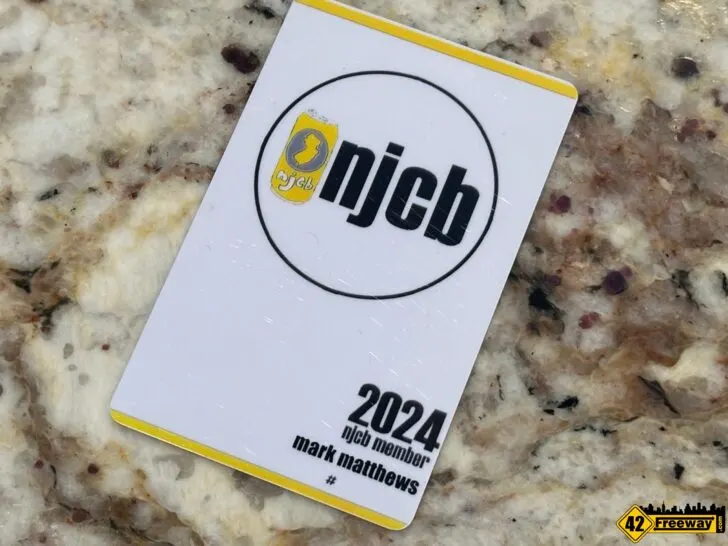
Television Use
Licensees for Breweries, Cideries, Meaderies, and Distilleries would be entitled to show or display any televised programs on any televisions, on any number or size televisions within the license premises.
Previously breweries were limited to the number of televisions they could have within the tasting room, which I think was capped at 2… regardless of how big your brewery was!
Also certain television programs were deemed special events, such as UFC Championship Events or the NFL Superbowl, and in the past breweries would have to consider them as one of their few special event allocations!
And all television events including “championship” events can be promoted without approval.
Now breweries can put in as many televisions as they want, show any program that they want to show, and not have to worry about approvals based on the type of show!
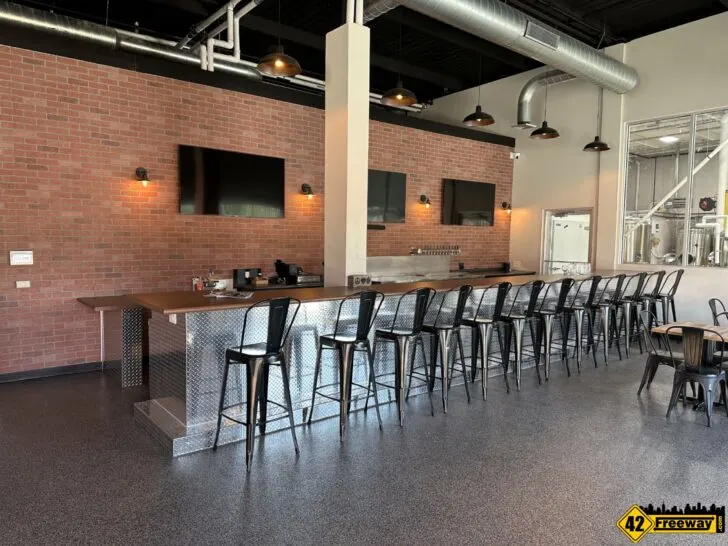
Tours
Craft Manufacturers will no longer need to offer tours of the brewery or distiller area, to purchase craft products for on-site consumption.
While today for most it seems the tasting room is the most significant aspect for visiting a brewery, it seems early on New Jersey put the focus on the brewery, with a tasting room where you could have “a taste”. And under that mindset, the tours were a required part of the visit.
Clearly now the new law identifies that the tasting room is a large portion of the experience for the breweries and consumers, and the tour is not required.
Restricted Brewery (Brew Pub) Production Increases
Note: This section was updated at 1:37pm shortly after publishing.
One aspect that was targeted at restricted BrewPub breweries only in the new legislation is the number of barrels that the holder of a brewery license could manufacture in a year was increased from 10,000 to 300,000.
Current law states that a Restricted Brewery must also have a Class C plenary license.
Additionally, these license holders will also be entitled to directly sell and distribute to retailers up to 50% of the beer that is produced on the brewery premises in each year. (Which could possible end up being a limiter… if distribution sales start outpacing tasting room sales? I’m not sure on this thought!)
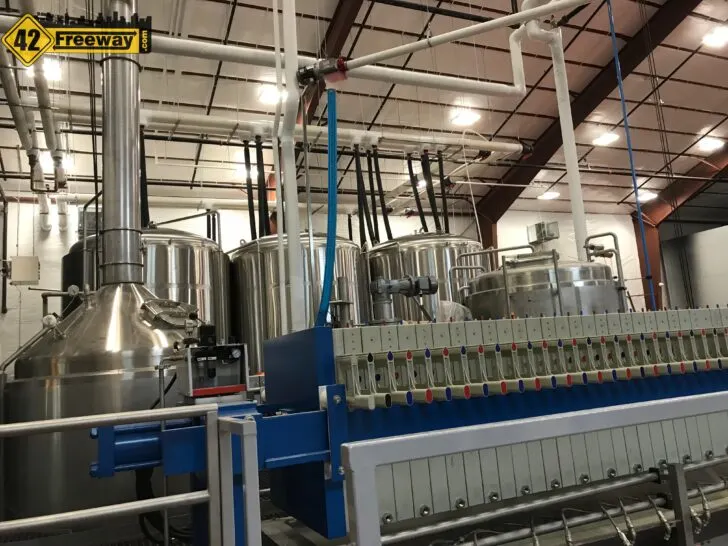
Farm Brewery Licenses
I’m not sure anyone saw this coming and I don’t know how widely it will be used, but the bill also establishes a farm brewery license which would permit the licensee to produce malt alcoholic beverages for retail sale for consumption off the license premise, and to offer samples.
The law requires the license holder to manufacture beer that is substantially produced from hops or other ingredients grown or cultivated on the licensee’s tract of land.
Basically I think this allows the opening of breweries that function in a manner similar to a winery.
In New Jersey wineries typically own large plots of land to grow their own grapes, to which they then make wine and sell to consumers.
This farm brewery license segment appears to offer the same capabilities… if you grow your own hops and other ingredients on your property, you can then brew them into a beer and sell it.
Wineries
Wineries are also addressed by this new legislation with a variety of licenses and production capacity rules.
I want to research this further.. including food being served in wineries.
Plenary License Changes
So as mentioned at the start of the article, they’re also are several changes to the traditional plenary retail full-consumption licenses targeted at getting inactive licenses in use!
Which I connect to real scenarios that I don’t think others have spelled out.
As I already stated, New Jersey lawmakers and the Governor are not happy with a common scenario of license owners who have been sitting on inactive “pocket” licenses for several years… and the new law forces holders of inactive licenses to use or sell!
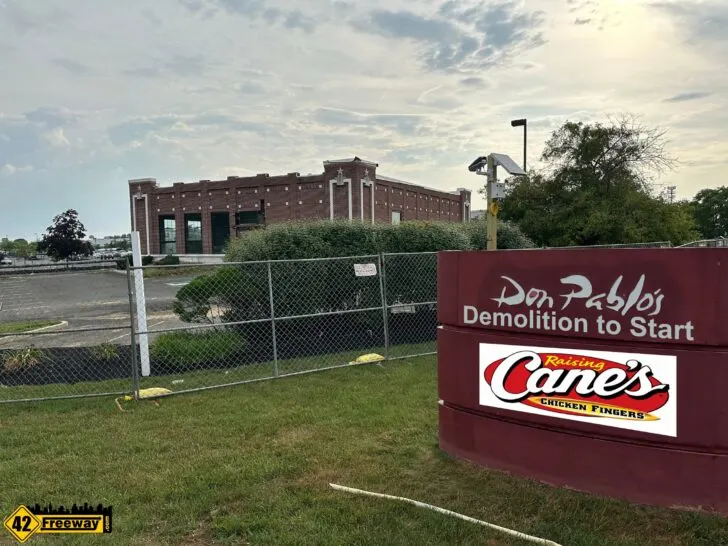
Inactive Plenary Retail Consumption Licenses
In New Jersey a person or business can own a liquor license and not have it in use. This is called a “pocket” inactive license. Previously there have been no restrictions on how long a licenses can sit unused.
But when you factor in that New Jersey has strong restrictions on the number of licenses available to a municipality (which is based on a town’s population), and some of the few available plenary licenses for a town are not fully utilized… this actually could be a a negative to towns, as they would prefer to see positive commercial developments take place to utilize those licenses.
A beautiful restaurant with full bar coming to the town is seen as a positive for the area, and could be the catalyst for additional development… something that most towns are agreeable to!
I shared one example in the beginning of the article about Harrison Township and their four licenses which still sit unused for 10 years.
Another example is Bellmawr’s Coral Reef Bar which burned down over 20 years ago.
The license for the Coral Reef Bar to this day still sits unused, and the property it was attached to is undeveloped.
Scenarios like this can be very frustrating to municipal officials, who see a property on the very busy Black Horse Pike right at the Exit 3 of the New Jersey Turnpike sitting abandoned, with a decades long unused liquor license!
Years ago I discussed this with a member of the Bellmawr Council who told me that absolutely the town would love to see a nice restaurant developed with that license and the Black Horse Pike location would be perfect.
Unfortunately, not only did the towns not have much power previously to get those licenses utilized, they may have felt a little reluctant to push the matter. A mayor in another township told me a few years ago that towns were afraid to push for the license utilization due to concerns that the New Jersey ABC would actually take away the license from the town!
Well the new legislation accounts for all of those concerns, as the State law has defined a full process to stop long-term inactive plenary licenses, and to keep expired licenses within the municipality.
Under the new legislation, an unused plenary liquor license is to be considered “inactive” if not utilized in a a functioning business, and the license can only remain inactive for just two years.
The governing municipality can then at their discretion extend the period during which the inactive state remains, for just one additional year. Three years total.
And before the inactive license reaches the expiration state, the license holder has three options:
- Utilize the license in a business (bar/restaurant).
- Sell the license to another person who intends to use the license in a bar/restaurant. (I presume the inactive status clock resets)
- or transfer the license to a contiguous municipality for their use in a redevelopment, improvement or revitalization area.
Well there actually is fourth option… and that is to do nothing. Which at that point the license expires and is taken away from the license holder!
Which is a really interesting aspect to the law when you consider that some of these license holders have paid many 100s of thousands of dollars for the licenses, and in some cases even 7 figures!
Consider a restaurant in popular Cherry Hill where sales prices for licenses can reach over $1 million. If the restaurant closes (which there have been several in recent years), basically the license holder has three years to utilize that license in a new restaurant operation, sell it to someone else interested in using it in a business… or they will lose the license!
So the other aspect of the legislation is lawmakers do not want towns to suffer from these scenarios by losing a license which could be used in the town.
So if a license becomes expired and the holder loses it, there are provisions for the municipality to sell a new license to another buyer. Those auction sales could go for hundreds of thousands of dollars, which I believe is money that would go directly to the municipality.
The legislation also accounts for the current 1,500 or so inactive licenses, many of which have been sitting unused for many years or decades.
To address those already inactive licenses, a short-term plan is to move them through the new inactive and expired statuses in groupings, broken out by the years of being inactive.
The entire list of inactive licenses will be sorted by inactive years, and then split into four groupings (quarters).
The 25% of the licenses that have been inactive the longest amount of time will be required to be transferred or utilized within one year of the bill’s effective date!
The next grouping of licenses (based on inactive age) will have two years to be utilized or transferred!
This continues on obviously, until the most recently inactive licenses will have up to four years to be transferred or utilized.
As mentioned in my intro I wonder if this starts bringing down the prices of full liquor licenses in New Jersey, as holders of inactive licenses are forced into a “use it or lose it scenario”. Instead of waiting years for the right project or buyer, holders may have to make a move much sooner and sell to someone at a lesser price.
The “transfer to adjacent” community for a redevelopment project is an interesting addition to me, because I am not sure where that comes into play.
The combination of one town having too many licenses, while directly next to them another town is in need of a license for a redevelopment project.. seems a rare case to me.
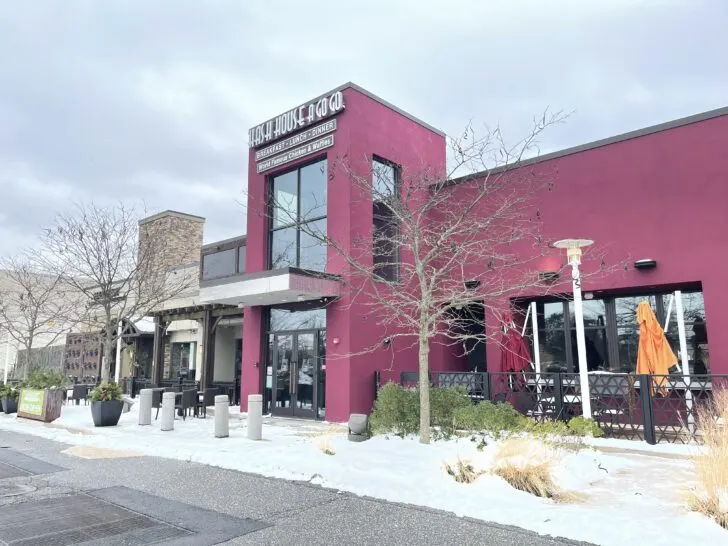
Shopping Mall Licenses
Finally the bill allows the issuance of special licenses for use with a food and beverage establishments (restaurants) located within larger shopping malls.
Under the new law a municipality may issue up to two special licenses for use in a shopping mall, that has a gross square footage of of 750,000 square feet or more. If the mall has 1.5 million square feet it would be entitled to receive 4 special licenses
The minimum fee for each of the licenses is set at $250,000!
So this has another interesting aspect to me as in South Jersey several of the malls already have traditional plenary liquor licenses in use, such as Deptford, Cherry Hill and Moorestown Malls.
Likely each of the licenses in use in those shopping malls cost significantly more than $250,000.
So is there a scenario where a Township, in coordination with license holders… swap out traditional plenary licenses for the new shopping mall licenses?
The advantage to the township would be the existing Mall based restaurants would still have their licenses via the new Shopping Mall license, and then another full license would be available for use elsewhere in the town! Crazy talk?
A Few Things Not Addressed
While this is considered a reform of New Jersey liquor laws… something that hasn’t happened in almost 100 years… there are still many aspects that are not accounted for. I am mentioning a few.
Population Restrictions – Smaller Restaurants
One widely called out item is that the restrictions on the number of licenses in a municipality based on population (in New Jersey) are actually a negative impact on consumers, business growth, and towns,
Many believe those population restrictions should be changed so that smaller “mom and pop” restaurants could serve alcohol.
Consider a state like Florida… where many New Jersey residents vacation and get to experience a more liberal liquor license allocation.
In the Sunshine State you can walk into almost any grocery store or convenience store and buy beer and wine.
Additionally, it seems that every restaurant in Florida can offer alcohol, as there are much fewer restrictions on the number of licenses.
One of my favorite breakfast places in Clearwater Beach is only open for brunch and offers traditional eggs and light sandwiches…. But you can also get a Bloody Mary or Mimosa with your omelet, and I realize that that is mostly impossible in New Jersey based on the scarcity and cost of a New Jersey liquor license!
The First Watch brunch restaurant which has locations in Cherry Hill and Washington Township, in other states have liquor licenses!
Catering Halls & (Some) Liquor Stores
Another thing that jumps out to me that I don’t see anyone else calling out is, Catering Halls in New Jersey also require full retail plenary licenses… just to support a few weddings each month. This would be a full license which could’ve been used to support a daily operating restaurant.
Should New Jersey have distinct Catering Hall licenses?
And also a trend that’s becoming more popular in older communities is some older retail consumption licenses support use as a liquor store only, and bars and restaurants with these older licenses are being purchased to convert the bar into a liquor store only.
So to be clear since the New Jersey laws were updated 80 years ago, and there are separate retail (bar) licenses which allow take-out sales from the bar area, and then separately authorized liquor store licenses.
But prior to that… licenses created in the earlier part of the 1900s… those early licenses could be used as a liquor store only. They are rarer to find, but many older New Jersey towns have at least one.
An example is Harpers Pub in Clementon which was recently converted into a liquor store, or even BobKat liquors in Deptford has an older “this could also be a bar/restaurant” license!
While towns are happy to have the licenses in use, there is concern that over time additional older and more flexible alcohol licenses will be converted to liquor stores only, to the loss of them being used in a restaurant.
For this aspect, I don’t fully have a proposed solution!

